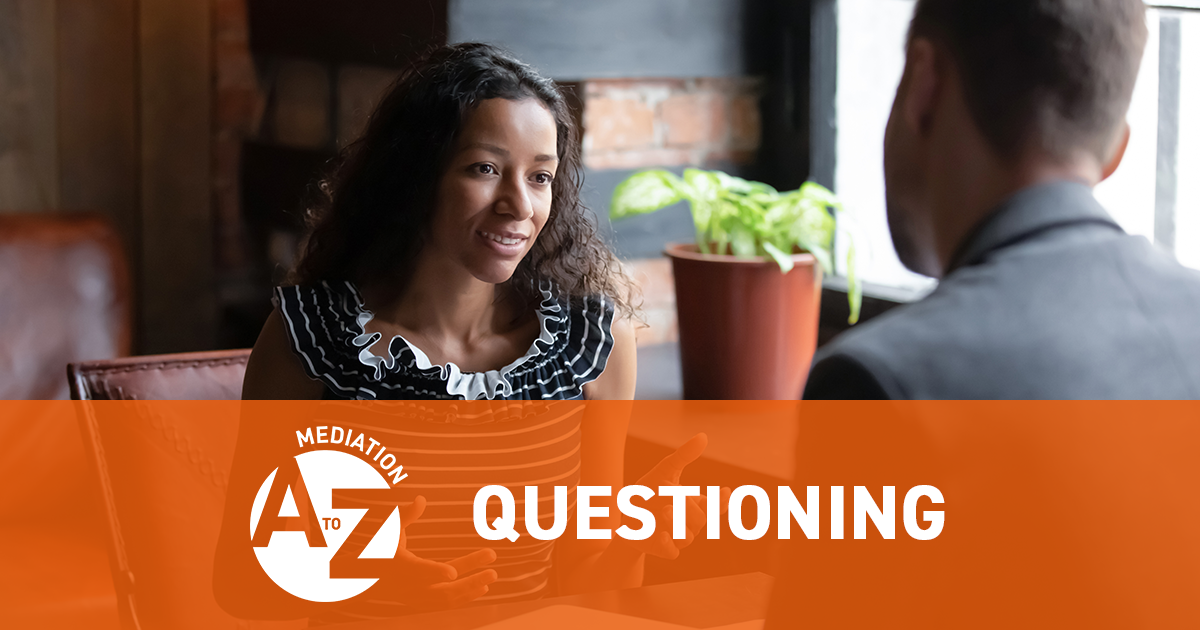
Posted on: May 13th, 2024

Whilst we’ve already covered LISTENING in our ‘A-Z of Mediation’ series, it is now time to look at the other side of a productive conversation – QUESTIONING.
Just like listening, a good mediator will use questions to draw out information, improve their understanding of the situation and, above all else, provides an opportunity for participants to tell their side of the story.
Questioning also builds much-needed rapport between the mediator and the participants, clarifies and confirms information, and helps identify positions and interests.
However, while it is important to ask questions, the mediator needs to consider the types of questions they’re asking, as well as when and why they’re asking them too.
Here are some basic tips for effective questioning:
Ask one question at a time
Whilst it might be tempting to rattle off several questions at a time, you don’t want to bombard the disputant and make them feel like they're being interrogated!
Listen to the answer
A good question may require some thinking time to answer. Don’t hurry them and listen to the full response. You may also hear something that you want clarifying or expanding on too.
Don’t ask questions for the sake of it
Silence in the mediation isn’t necessarily a bad thing. Participants may be thinking or reflecting on what is happening, which could lead to more valuable information down the line.
Avoid leading and multiple-choice questions
Don’t lead things down a certain path by trying to get the answers that you think they want. Yes or no questions also limit the answers that they can provide.
Asking questions is something that everybody does, but not something that everybody does well. As such, it is important for mediators to be conscious of what questions they are asking and how they are asking them.